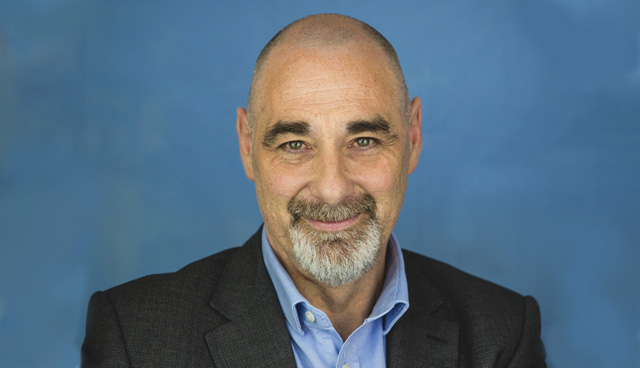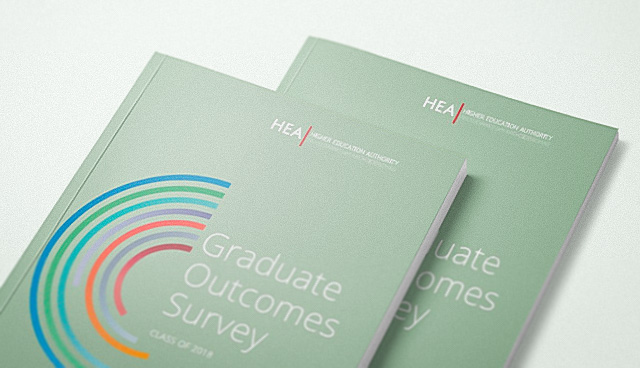Higher Education Authority: Adapting to our new reality

The new Chief Executive of the Higher Education Authority, Dr Alan Wall, speaks about his belief that future and emerging skills are the key to economic success nationally and internationally and how Ireland’s higher education sector must adapt to make this a successful reality.
The impact of Covid-19 on higher education has forced changes across the board, but it also foregrounded the issues where the Higher Education Authority would be required to place its focus in the immediate future – flexible skills provision, inclusion, and the changing landscape.
As head of the HEA, Dr Wall is only too aware of the challenges that the higher education sector has had to face over the past year. And now, more than ever, it needs to be acutely responsive to the future and emerging skills needs of the Irish economy.
“To date Higher Education has responded well to the demands of society and there is good evidence to back this up. Take, for example, our most recent Graduate Outcomes Report. It shows that 80 per cent of graduates are in employment nine months after graduation and 90 per cent of those employed graduates are working in Ireland. Further, there is a high level of satisfaction amongst employers, our Ireland National Employer Survey showed an 86 per cent satisfaction rating among employers with the quality of higher education graduates.
“However, the system needs to continue to be more responsive to, and focused on, the future and emerging skill needs of the Irish and international economy.”
Sectoral response
To date, the response of the higher education sector to aligning the skills needs of the economy has been further enhanced through initiatives such as Springboard+ courses, the Human Capital Initiative, the Apprenticeship system, the July Stimulus and more generally throughout the HEA’s undergraduate and postgraduate provision.
The role of employer engagement is to the forefront of all these initiatives through direct links with higher education providers or through engagement with the Regional Skills Fora Managers.
This collaborative approach has ensured that the higher education sector is producing graduates that are future world and work ready – such as embedding creative thinking, entrepreneurial skills, new technologies and new teaching and learning methods.
“We need also to ensure that we are constantly preparing for new and emerging technologies and a changing cohort of learners. While a lot has been achieved, there is always room for improvement and higher education needs to be examining different types of work-based learning and dual learning initiatives which are flexible and can be rapidly updated to meet labour market skills needs.
“This challenge is being met through a host of different initiatives that are targeted in specific areas such as innovative methods of teaching and delivery and responding rapidly to the emerging skills needs of enterprise, ensuring that we keep ahead of the curve when it comes to preparing students for the new and changing economic landscape.”
Access to education
One of the ways this is working for higher education and for enterprise is a new system which will allow pathways to full qualifications in bite-sized chunks and where students can get recognition of their prior learning, which would include industry experience, opening access to higher education to a whole new group of learners.
The recent July Stimulus funding allowed for the development of modular short-based courses like those being run in other EU countries. It is an area that the HEA would like to expand further due to its importance, flexible approach, and popularity.
Higher education is also about ensuring the student gets what they need from their studies and in a changing environment, this can be complex.
“What is needed is the development of more seamless pathways between further and higher education that allows movement back and forth between the two different sectors. I see this as being an important focus area between the two sectors in the coming years,” Dr Wall says.

Not only do we need flexible provision, but we need to ensure that we provide pathways to higher education to all of those seeking to upskill through higher education.
“While progress has been made, our higher education population is still not as diverse as it should be. It does not reflect the diversity of the population of Ireland; this needs to change. The economy requires a supply of innovative, creative, flexible, and critical thinking graduates who bring diverse ideas to their places of work and challenge traditional ways of thinking. We can only supply these graduates if there is a diversity of students entering higher education.
“We want to be a society that embraces diversity and where higher education is accessible by all regardless of background, disability, ethnicity or financial means. This is a priority that dovetails with economic objectives. Our economy needs to mobilise the talents and skills of our diverse population in order to sustain growth and meet skills needs. For both social and economic objectives, it is therefore imperative that inclusivity is at the heart of our objectives for our higher education system.”
Funding streams such as the FSD (Fund for Students with Disabilities), SAF (Student Assistance Fund) and PATH (Programme for Access to Higher Education) are welcome investments and build on the core access infrastructure funding provided through the HEA block grant. However, this needs to also be part of a wider social policy strategy and integrated whole-of-education approach that addresses systemic issues of disadvantage across society.
Technological universities
“The landscape of Irish higher education is changing. The most significant change is the emergence of technological universities. These new institutions will build on the firm foundations of the former Institutes of Technology, increasing their capacity and collaborative scale in teaching and learning, equity of access, research and societal and enterprise engagement,” he says.
Ireland’s first new technological university, Technological University Dublin, was created in early 2019 through the merger of DIT, and the Institutes of Technology in Tallaght and Blanchardstown. Cork and Tralee will formally merge in January 2021 to form Munster Technological University. There are others on the way too, Sligo, Letterkenny and Galway on the west coast, Limerick and Athlone in midlands and mid-west, and Carlow and Waterford in the south-east.
“These TUs are in and of their regions, and each will be distinctive, both from each other and from traditional universities, but equally each will support social, cultural and economic development, as well as delivering an enhanced student experience and range of flexible and targeted learning opportunities,” says Dr Wall.
When he joined the HEA as its new Chief Executive in 2019, Dr Wall says he found an organisation that “works hard to support a system catering for almost a quarter of a million students”.
“We are now at a challenging point but also at a place of opportunity for reform and modernisation. We are ready for that challenge,” Dr Wall concludes.
T: +353 1 231 7100
E: info@hea.ie
Twitter: @hea_irl
W: www.hea.ie






